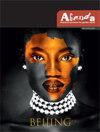Unbecoming to becoming a man: Reply to Moshibudi Motimele
IF 0.4
Q4 Arts and Humanities
引用次数: 1
Abstract
abstract In this article, I respond to Moshibudi Motimele’s engagement (published in Agenda 35(4)) with Jared Sexton’s book, Black Men, Black feminism: Lucifer’s Nocturne and my book, Becoming Men: Black Masculinities in a South African Township that I see black male vulnerability as an aberration and that my analysis of the participants’ narratives is acontextual and depoliticised due to being rooted in the discipline of psychology. In my reply, I argue that the psycho-social approach was not a limitation but offered better insight into situating the psyche of black male subjectivities within a particular social and historical context. This approach interpreted black boys’ and men’s vulnerability not as an aberration but as something to celebrate. Their anxieties, fears and aspirations, despite characterised contradiction and tension, represented a positive move away from hegemonic attitudes towards alternative masculinities.不准备成为一个男人:回复Moshibudi Motimele
在这篇文章中,我对Moshibudi Motimele的参与(发表在议程35(4))与Jared Sexton的书《黑人,黑人女权主义:路西法的夜曲》和我的书《成为男人:南非乡镇的黑人男子气概》进行了回应,我认为黑人男性的脆弱性是一种失常,我对参与者叙述的分析是情境化的,非政治化的,因为它植根于心理学学科。在我的回答中,我认为心理-社会方法不是一种限制,而是提供了更好的洞察力,将黑人男性的主观心理置于特定的社会和历史背景中。这种方法解释了黑人男孩和男人的脆弱,而不是一种失常,而是值得庆祝的事情。他们的焦虑、恐惧和渴望,尽管有矛盾和紧张的特征,但代表了一种积极的转变,即摆脱对另类男性气概的霸权态度。
本文章由计算机程序翻译,如有差异,请以英文原文为准。
求助全文
约1分钟内获得全文
求助全文

 求助内容:
求助内容: 应助结果提醒方式:
应助结果提醒方式:


